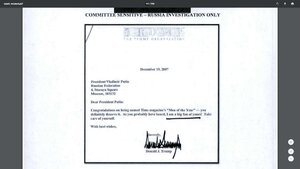With all due respect
@Zugzug, but your ''all parties are the same'' remark is a simplification of what I have written so far & not really intellectually honest. One example is following the logic reasoning of your argument: to say that I support the idea that both parties are the same, is to say that I don't see essentially any difference between the parties in every single way. That is something that I haven't written explicitly nor implicitly. There are differences in social policies, but my main concern is that both parties supported and still support business friendly models on the misperception that trickle down economics benefits the lower class, that corporate influence in politics cannot be denied per se & that it may negatively influence democracy (serving common good).
In recent years, the Democrats have been consistently liberal on social issues (gay marriage, justice reform, abortion), but almost indistinguishable from the Republicans on economic issues. They are as likely to be as hostile to unions as Republicans, their support for free trade hurt the working class and exported the manufacturing sector (Source: the book ''Listen Liberal'', link:
https://inthesetimes.com/features/l...frank-democratic-party-elites-inequality.html).
If we talk about the role of corporate money in politics, I think we both differ in that perspective in that I belief that not all companies or rich people are giving donations to parties for philanthropic reasons, but that it is also a means to get close to politicians in hopes of changing their mind or convincing them to support a certain policy. That doesn't necessarily have to mean that it is good for people in general per se. A report in 2014 (Gilens & Page, 2014) gives a clear presentation detailing the outsize degree of influence of the rich on the political system and the consequences of economic inequality on democracy in America. Their conclusion is that preferences of the rich were far more likely to shape politics than the preferences of the middle-class or poor. Here's a summary from the New Republic website:
"Economic elites and organized groups representing business interests have substantial independent impacts on U.S. government policy," the authors wrote, "while mass-based interest groups and average citizens have little or no independent influence." As they further noted in their follow-up book, that imbalance has translated to decades of policies that have slashed taxes for the wealthy, pared back the social safety net, and deregulated Wall Street, even as broad segments of the American public support initiatives like Medicare for All, higher taxes on the rich, and government intervention in climate change'' (link:
https://newrepublic.com/article/158330/democrats-cant-quit-addiction-big-money-donors)
There are examples of this happening in current politics. You might think that it is a coincidence that politicians or lobby groups change their minds/behavior after having received a donation, but sometimes it's too much of a coincidence. Here's just three example that quickly comes to mind:
· Congressman Derek Kilmer's initiative to commercialize asteroid mining after a donation from a mining company (
https://kilmer.house.gov/news/in-th...congress-to-protect-private-property-rights-3)
· Governor Cuomo giving immunity to nursing home executives after big campaign donations (
https://www.theguardian.com/us-news/2020/may/26/andrew-cuomo-nursing-home-execs-immunity). As long as Citizen's united stands, this will
· Businessman Louis DeJoy donated money to Trump's campaign and later assigned US Postmaster General (
https://choice.npr.org/index.html?o.../new-postmaster-general-is-top-gop-fundraiser)
About my political viewpoints: you should know that I already mentioned many times before that I am a progressive (actually balancing between social democracy, social liberalism & conservative communitarianism). That I am strongly rooted in progressivism doesn't mean I don't belief in US politics anymore because of strong ties between business and the two big parties (or ''that they are not good enough''). Change is always possible. Anyway, If I were an American, I would support Biden temporally & belief that grassroots organization, pressure on politicians and cooperation between likeminded spirits are crucial in overturning issues like Citizen's United, changing the face of Democratic Party & maybe forming a 3rd party if differences between Centrists and Progressives are too big to ignore. Public financing of political parties is a way to make parties more independent & more receptive to voters, as I have seen in my country.
And lastly, if you think I haven't proven anything, well, that's entirely fine. I at least try to substantiate my arguments about the role of money in politics (my main concern) with sources. I don't know if you had philosophy in high school, but if you want to prove the fallacy of an argument, you ought to substantiate your counter-argument with logical reasoning and (preferably) sources to disprove that. If you assume that I believe every party is the same (which I don't think at all), or that corporate money influences politics (which I do belief, but which you didn't mention), at least try to substantiate it by using logical arguments and (preferably) sources to prove otherwise OR ask Socratic questions why I have arrived at the conclusion that, indeed, all parties are the same.
Edit: It's a very cynical remark to assume that people like me criticize both parties because it's ''enlightened & novel''. Seriously? Why and how did you arrive at that conclusion?

 Member
Member
